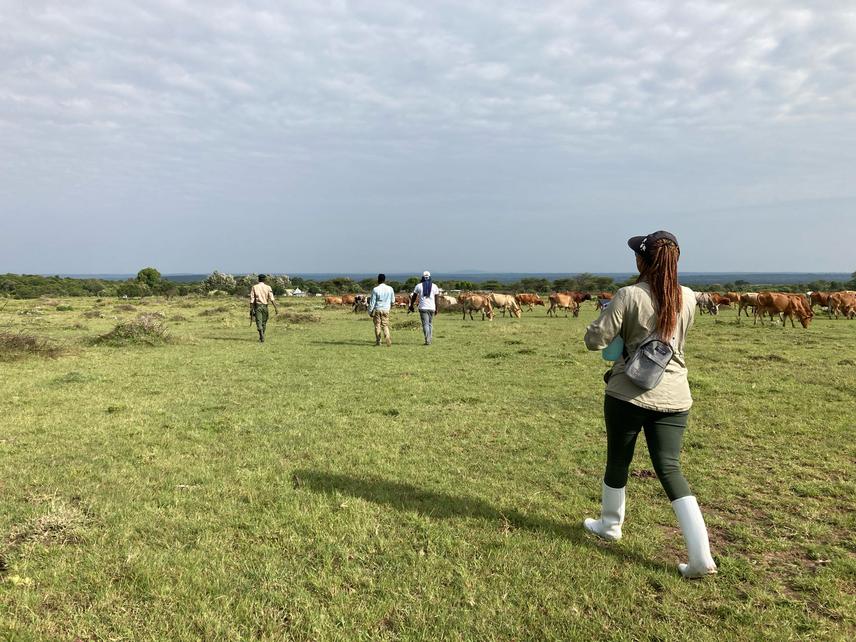Consolata Gathoni Gitau
Large-scale restoration initiatives are carried out across a variety of vegetation types following the Kunming-Montreal Global Biodiversity Framework, necessitating cost-effective monitoring systems to assess project progress and impacts. Bioacoustic monitoring has evolved as a cutting-edge valuable tool in conservation science, providing unique insights into the study of wildlife species, although it is underutilised in restoration. Acoustics is the use of sounds to monitor species in near inaccessible areas with minimal disruption to their natural behaviours. Acoustic approaches help understand the ecological complexity of restored ecosystems by analysing animal acoustic communities and soundscapes, which provide insights into species interactions, ecological community structure, and ecosystem function.

Advising on the field methods that I am using for my data collection in Maasai Mara. ©Dr Antonio Uzal.
The purpose of this study is to evaluate the use of soundscape as a tool for monitoring land degradation and ecological restoration in the northern Maasai Mara ecosystems. This project will be the first to use passive acoustic monitoring (PAM) to evaluate the success of restoration and the gradient of land degradation in Africa's tropical savannahs. The project will develop a mechanism for quickly transforming large-scale recording data into meaningful patterns that can be utilised as a monitoring tool for ecosystem restoration and land degradation. The project will help savannah conservation by creating standardised measures for tracking terrestrial ecosystem restoration projects. Sharing these protocols with the broader scientific community will increase the consistency and comparability of global monitoring efforts.
The project's findings will serve to validate the success of restoration techniques or management practices, directing conservationists in future restoration initiatives. The research will compare the cost-benefit impacts of using acoustics in monitoring restoration efforts to traditional field survey methods. Community workshops will be used to educate residents, stakeholders, and community leaders about the threats and causes of land degradation, with an emphasis on ecosystem restoration. We will enable engaging conversations in focus group talks to encourage individuals to participate actively and share their knowledge.
Header: Training staff from EarthWatch, Enarau Conservancy, and Nottingham Trent University. ©Dr Antonio Uzal.